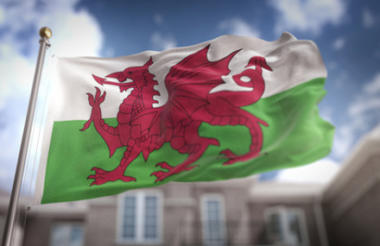Ruth Marks, chief executive of WCVA, highlights the key findings from the launch of their data hub and calls for action to address underfunding of the Welsh charity sector.
A diet of negative stories by mainstream media in recent years, has made us at WCVA (Wales Council for Voluntary Action) all the more passionate to demonstrate the third sector’s value. Thousands upon thousands of charities, social enterprises and community groups bend over backwards in order to go the extra mile and move mountains for the people who live in their communities. Wales would be much the poorer without them.
These 32,000 organisations, 97 per cent of which are based in Wales, are a source of enormous inspiration to me. Meeting these incredible organisations – and the people who work and volunteer for them – is the best part of my job. It’s one of the main reasons I have been so looking forward to gofod3, our flagship event taking place in Cardiff today, which is the biggest third sector event of its kind in Wales.
gofod3 is a rare opportunity for us to come together in one space (gofod is Welsh for space) and learn from each other. It’s more a festival than a conference, with over 600 professionals and volunteers picking and choosing from 70 events and 60 different exhibitors, all chatting about the latest topical issues, including Brexit, public trust in charities, and how to attract more women trustees.
Showcasing the value of our sector
This year, we wanted to showcase, in very clear terms, the value of our sector. That’s why we conceived the idea of a brand-new data hub for the third sector in Wales. We commissioned Data Unit Wales to devise for WCVA an interactive, publicly accessible resource that would be able to track data trends and capture all of our most recent statistics, as well as those from NCVO; Welsh Government; the UK’s Employer Skills Survey; the Office for National Statistics and more. This makes it unlike any other third sector data resource in the UK.
We are now able to demonstrate how incredibly important volunteering is to the health of the sector in Wales, with 28 per cent of people, including one in four young people, engaged in voluntary activities of some kind. This includes invaluable time and resource, like parents coaching their child’s sports team. Altogether, volunteering contributes approximately £750m worth of time per year. The data hub allows us to go a step further and also say that, of all the people living in Wales, those in Powys are the most generous with their time, with 38 per cent of people volunteering in the area.
Chronically under-resourced
Unfortunately, volunteering will only take you so far. Our new data hub also tells us that our income in Wales is woeful compared to other nations and regions in the UK. Wales accounts for just £1bn of a £45bn third sector income overall. We are chronically under-resourced when it comes to finances, operating on just half the income we should be getting.
On the one hand, this is awe-inspiring insofar as the sector is delivering some incredible benefits to Wales on a pittance. On the other hand, I wonder what we could do with the budget of our neighbours. Most of all, I worry we are hurtling towards a funding cliff.
Our small income is likely to get smaller. Brexit will bring the end of EU structural funds, which make up some 2 per cent of our current income, and it’s not yet clear what would replace them, if anything. Public funding is shrinking. For example, Welsh Government, owing to austerity measures, has already cut its grant funding by 30 per cent over a five-year period and is warning that further cuts are likely.
We must act
In the meantime, the stubborn levels of poverty and social exclusion in Wales remain. Only yesterday, we were reminded by the Joseph Rowntree Foundation that Wales has a higher rate of poverty than England, Scotland and Northern Ireland. This does not mean that people are unwilling to put their hands in their pockets in Wales, it just means our lower wages leave us with very little spare change.
This is why we must act – as a sector and as a nation. We need to have an urgent discussion on both sides of Offa’s Dyke to help understand the reasons for our shoestring budget and then tackle them, one by one.
|
Related articles











